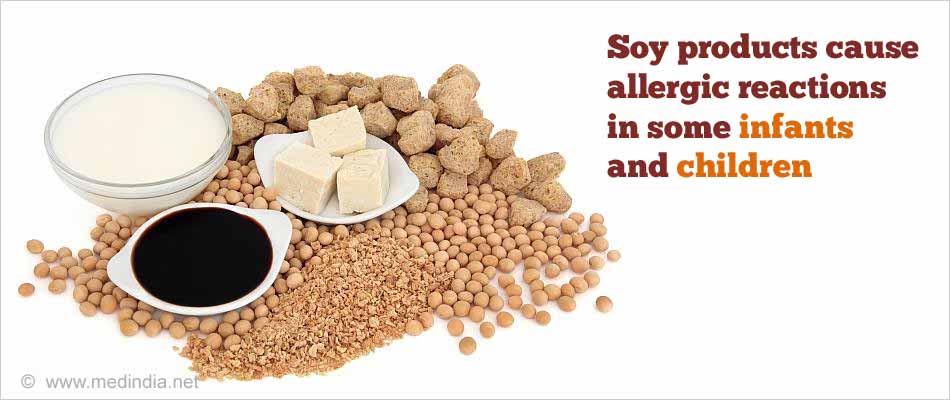- Soy Protein Allergy: Incidence and Relative Severity - (http://jn.nutrition.org/content/134/5/1213s.long)
- Soy allergy - (http://www.mayoclinic.org/diseases-conditions/soy-allergy/basics/tests-diagnosis/con-20031370)
About
Soybean is considered to be one of the healthiest foods of the day. And the more popular soybean gets, the more we hear about soybean allergy.
Soybean has been listed as one of the eight foods that are responsible for 90 percent of all allergenic reactions.
Soybean allergy is mostly seen in babies and children, affecting 0.4 percent of children. However, majority of children with soybean allergy develop tolerance in early childhood. Research shows that 50 percent of affected children outgrow their allergy by the time they are 7 years of age.

What exactly in soybean causes the allergy? As in all food allergies, if you are allergic to soybean, your body’s immune system identifies certain proteins in soybean to be harmful. This triggers the production of IgE antibodies in your system. So, the next time you eat soybean, your immune system releases histamine and other chemicals to fight these proteins. These chemicals cause your allergic reactions such as rashes, diarrhea, nausea and other symptoms.
Although scientists have determined that certain proteins are responsible for allergy, they are not completely certain about which proteins exactly cause the allergy. At least 16 allergens have already been identified.
A word about soy lecithin here. Soy lecithin is a by-product of soybean oil production and is mainly composed of phospholipids (fats). Lecithin is a very good emulsifier that is used for binding food ingredients but makes them non-sticky. That’s the reason they are used so extensively in chocolates, bakery products and other processed foods.
Although soy lecithin is mainly composed of fats, it has also been shown to contain allergy causing proteins, albeit at low levels. A number of cases related to soy lecithin allergy have also been reported. Researchers from the Department of Food Science and Technology, University of Nebraska, found that soybean lecithin is in fact a source of hidden allergens and that these allergens are ‘a more significant concern for soy-allergic individuals consuming lecithin products as a health supplement’. However, studies have also shown that children with soy allergy need not be allergic to soy lecithin as well. Your doctor will be the right person to guide you regarding this.







